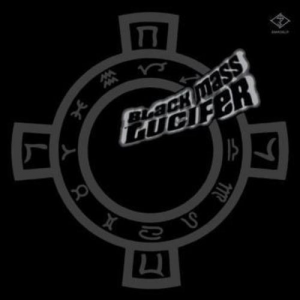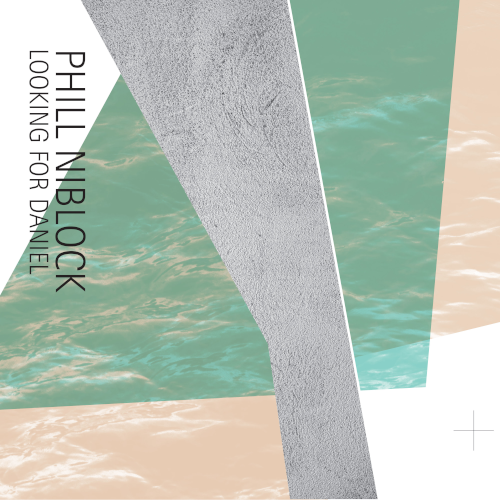Black Mass Rising
 Canadian composer Mort Garson stands among the likes of Jean-Jacques Perrey and Wendy Carlos as one of the more interesting innovators who explored the weirder extremes of popular music with the aid of the Moog synthesizer from the late 1960s on into the next decade and more. Many of his earliest synthesizer albums went under names as redolent of their time as the instrument was soon to become (Love Sounds, Electronic Hair Pieces — interpretations of numbers from the musical — and Mother Earth’s Plantasia, an LP of music for growing plants to) and his spacey electronic compositions were used appropriately enough during US television coverage of the Apollo 11 moon landings. Garson also dipped his toes into darker territories under the name Ataraxia on The Unexplained: Electronic Musical Impressions of the Occult in 1975; and on Black Mass, which originally appeared under the name Lucifer in 1971, and rides again as a remastered vinyl edition courtesy of (naturally) Black Mass Rising.
Canadian composer Mort Garson stands among the likes of Jean-Jacques Perrey and Wendy Carlos as one of the more interesting innovators who explored the weirder extremes of popular music with the aid of the Moog synthesizer from the late 1960s on into the next decade and more. Many of his earliest synthesizer albums went under names as redolent of their time as the instrument was soon to become (Love Sounds, Electronic Hair Pieces — interpretations of numbers from the musical — and Mother Earth’s Plantasia, an LP of music for growing plants to) and his spacey electronic compositions were used appropriately enough during US television coverage of the Apollo 11 moon landings. Garson also dipped his toes into darker territories under the name Ataraxia on The Unexplained: Electronic Musical Impressions of the Occult in 1975; and on Black Mass, which originally appeared under the name Lucifer in 1971, and rides again as a remastered vinyl edition courtesy of (naturally) Black Mass Rising.
So when “Solomon’s Ring” stomps over the threshold, it sets the mood in fine style, trilling sibilants of treated voices spluttering like The Residents are going to have a really bad day in Hell when they get hold of similar gear later in the Seventies; but here, Garson is as much on an exotica tip as a horror (pitch) bender, which “The Ride Of Aida (Voodoo)” with its deliriously bouncy percussion and vibrant stereo panning goes on to prove. To modern sensibilities, the audio fripperies and tweaks sometimes seem to be rendered for the sake of exploring what was still a new and exciting set of controls at the time and might now feel dated and perhaps even a little overworn; but there’s no denying the plentiful charm that this album exudes either.
More spacious than sombre, less a prototype for the darkling legions of the doomed metallers that Black Sabbath were busy inspiring than an utterly fried trip to the jollier side of Satanism, Black Mass never quite properly achieves threatening, nor exactly ominous. Instead, it’s a bizarre combination of all the flickering, brittle sounds that Garson’s analogue electronics could muster with the sort of drum machine bloops and pops that a possessed bingo hall entertainer might let fly as the hands of the Prince of Darkness seize the controls and pull out all the daemonic stops — with a soft porn moan thrown in for good measure now and then, calling to mind the soundtrack to Jess Franco‘s notorious film Vampyros Lesbos of the same year. “Voices Of The Dead” achieves a measure of Echoplexed creepiness, with something of Vangelis to its plangent melodies and reverberant clatter, but “Exorcism” has never seemed so jaunty as when rendered by Garson’s keyboards and tumbling percussion. However, the weirdness is still present and essentially, disconcertingly (in)correct, smeared generously across the underlying motive forces witha lysergic limpidity that nevertheless feels more celebratory than sinister.The title track is a truncated masterpiece of eye-popping drama, bubbly arpeggiations uncurling their shivery meanders as a looming tide of effected swirls do their best to set the scene for something wicked this way a-coming. The insistent percussion does a good job of switching the groove alert to red as the horns of Satan make their presence felt in the low-end rumbles that manage to prefigure (two decades early) the weighty feel of drum and bass pressure on the internal organs on an album highlight that is all too brief an encounter with the darker, deeper end. Still, the Lord of the Flies infests “The Evil Eye” with suitable buzzing tones and some striking arrhythmia, clown-like frissons spluttering among the mournful sweeps, while “The Philosopher’s Stone” exudes a stately drama that sets the walls shuddering as much as the ears a-tingling between the sharpest of trebles and the lowest of synthetic bass floors.
All of which comes toa heady flood of misanthropic mood music on the sinuous “Witch Trial”, its mellifluous malevolence riding that fine borderline between all-out mania and effortless pop shimmer, and that’s pretty much the case throughout the album. It’s easy to visualise the Hallowe’en revellers of 1971 shaking their collective hippie thang to Black Mass in the discotheque after a night out at the pictures for a double bill of Dr Jekyll and Sister Hyde and The Abominable Dr Phibes; less so serving as the soundtrack to an actual celebration of all things deviant and devilish.While Black Mass may ultimately be more camp than corrupting, it’s worth remembering that both those states of mind were more often frowned on than not at the time of the LP’s original release. Lurid tales of witches’ covens and sword-wielding black magicians were a prurient staple of the tabloid press and somewhere in the region of 666 straight-to-paperback exposés, and it’s forgiveable — and/or amusing — to imagine that the discreet lounges of the bourgeoisie were throbbing hotbeds of orgiastic rituals and candle-lit abominations, all held to the swinging sounds of Lucifer and his possessed Moog modular. Forty-five years later — and shorn of some of the sensationalism — the album sounds better than ever in this lovingly re-presented edition, and will doubtless be setting some dancefloors and home stereo turntables on the left-hand path for many more decades to come.
-Richard Fontenoy-




One thought on “Lucifer – Black Mass”
thank you very much!!…Black Mass Rising team.